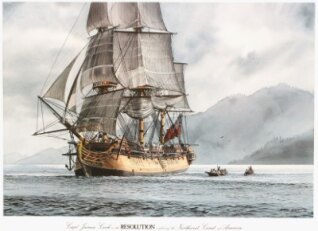
“Look,
Mom”, I said and I was hardly able to talk, me and Jennifer were
laughing so much, even though she was worried about Lumpy. “Look how
stupid they look. They think they’re scaring the daylights out of
Jennifer’s pig! I guess they just don’t realize how silly they look,
waggling their bottoms like that, clicking their teeth. They’re a pair
of clowns!”
“Ah, they’re exercising territorial imperative”, Mom
said. Like she had just had a conversation with them, and knew all about
it.
“What’s that, Mrs. Feldman?” Jennifer asked. I wouldn’t
have. I wouldn’t give Mom the satisfaction of wanting to know. She
doesn’t have to talk like that, so no one can understand.
“Well
Jennifer, an animal feels very possessive of what he considers to be his
personal territory. When a strange animal comes on the scene, most
particularly onto the first animal’s territory, the first animal
instinctively wants to protect his property rights.”
“Boy, how stupid can you get? It’s
our property, not
theirs. We just let them live here.”
“Don’t be silly, dear. You know perfectly well what I mean.”
“Do
you think it’s all right for them to be together like this then, Mrs
Feldman? Will they get friendly after a little while longer?"
“Probably,
Jennifer. What I think would be a much better idea is to put them all
on neutral territory. It’s very nice out now, all you need is your
sweater. Why not take them into the backyard on the grass, so they can
forget territorial hostilities? Then perhaps they’ll be more friendly to
one another.”
“Okay, that’s a good idea, eh Jennifer?” I said.
And she thought so too. So we did. I mean, we took the three of them
outside and I made a little pen for them to stay in out of the old
croquet hoops, and the short garden fencing.
But wouldn’t you
know it, they just started to ignore each other! All the stupid - oh,
pardon me, they’re not really stupid
(not much!) - well, all they wanted
to do was eat and eat and nibble on the grass, nothing else. Just like
pigs. Not very sociable, actually. Very appropriately named, you might
say.
“Hey, how would you like to see how I trained Lumpy?” Jennifer asked.
“Trained?
You trained her to do something? My dad says Guinea pigs are too stupid
to be trained to do anything but eat … and poop. But they do that
naturally.”
“No,
honestly.
I’ve trained her to run after me. It didn’t take all that long, either.
Whenever I take her out of her cage and put her down outside or
something, like it’s somewhere that she doesn’t recognize, she’ll run
after me. I taught her when she was small. Actually, I didn’t exactly
teach her so much, it was just that the first few times she just kind of
followed me. Now it gets so that if I move away and call her, she’ll
come over. Or, if she doesn’t notice that I’ve gone away and then she
doesn’t know where I am, I’ll call her and she follows my voice to get
to me.”
“Hey,
cool! Let’s see her do it, Jennifer.”
So
she took Lumpy out of the wire enclosure and took her over to the
middle of the backyard,and put her down. At first Lumpy just sat there,
not even moving or anything. Then she put her head down and just started
eating like she was starved, or something. Jennifer walked away and
nothing happened, her pig just kept eating.
“Oh, darn. Sometimes she doesn’t notice. Like when she’s busy, eating.”
“That’s like always. They’re
always busy eating.”
“No,
really Jen, she
does run after me. Wait a minute, you’ll see.”
“C’mon Lumpy, Lumpy,
c’mon!”
Just
when it looked like Jennifer was going to get mad at poor little Lumpy
and I was ready to laugh it off, wouldn’t you know it, the little pig
started waddling off in her direction with her head down, sniffing the
grass. She was running in little spurts and twice stopped and did a
little hop and a skip.
I just
love
it when they frolic like that. Munchkin and Grumpkin used to do that a
lot when they were babies. Now they don’t do it so much. They’re getting
to be old grumps. Just like kids playing, and then growing up to be
serious people.




